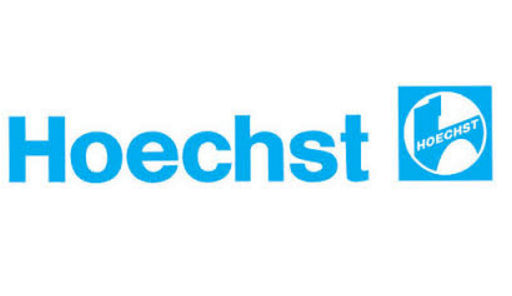预约演示
更新于:2025-05-07
GRP x Bombesin receptor
更新于:2025-05-07
基本信息
关联
1
项与 GRP x Bombesin receptor 相关的药物作用机制 蛙皮素受体拮抗剂 [+1] |
在研机构- |
在研适应症- |
非在研适应症 |
最高研发阶段无进展 |
首次获批国家/地区- |
首次获批日期1800-01-20 |
100 项与 GRP x Bombesin receptor 相关的临床结果
登录后查看更多信息
100 项与 GRP x Bombesin receptor 相关的转化医学
登录后查看更多信息
0 项与 GRP x Bombesin receptor 相关的专利(医药)
登录后查看更多信息
573
项与 GRP x Bombesin receptor 相关的文献(医药)2025-03-22·Biological and Pharmaceutical Bulletin
Evidence Showing Bombesin-Like Peptides Contract Guinea Pig Vas Deferens Smooth Muscle
Article
作者: Fujita, Hiryu ; Kato, Ayu ; Enomoto, Miwa ; Liu, Ge ; Obara, Keisuke ; Tanaka, Yoshio ; Makino, Futaba ; Agui, Hayato ; Yamada, Nana ; Yoshioka, Kento
2025-03-01·Current Radiopharmaceuticals
Development of [64Cu]Cu-NODAGA-RGD-BBN as a Novel Radiotracer for Dual Integrin and GRPR-targeted Tumor PET Imaging
Article
作者: Alirezapour, Behrouz ; Amraee, Naeimeh ; Hosntalab, Mohammad ; Yousefnia, Hassan ; Hadadi, Asghar
2024-10-14·Inorganic Chemistry
Bombesin-Targeted Delivery of β-Carboline-Based Ir(III) and Ru(II) Photosensitizers for a Selective Photodynamic Therapy of Prostate Cancer
Article
作者: Planas, Marta ; Bermejo-Casadesús, Cristina ; Espino, Gustavo ; Iglesias, Mònica ; Sanz-Villafruela, Juan ; Feliu, Lidia ; Riesco-Llach, Gerard ; Martínez-Alonso, Marta ; Massaguer, Anna
1
项与 GRP x Bombesin receptor 相关的新闻(医药)2025-01-16
·VIP说
PREFACE
前言
2023年之前,核药还只是诺华和拜耳两家MNC重点谋划的方向,但在随后的两年,诸多MNC开始通过一系列合作、并购、投资强势入局,核药赛道热度不断飙升。
因此在JPM
2025上,各大MNC和biotech的核药布局与进展值得关注。
01
拜耳,核药领域先行者
拜耳作为较早布局核药赛道的MNC,早在2009年就与Algeta合作开发Xofigo,并于2013年获批上市,用于治疗晚期骨转移型去势抵抗性前列腺癌。
Xofigo上市后,销售额在2017年达到峰值(4.08亿欧元),后续开始逐年下滑。尽管Xofigo并没有如愿成为一款重磅炸弹,但是拜耳也从未停止对于核药赛道新疗法的布局。
根据拜耳本次JPM上的演讲PPT,2024年前三季度放射学板块整理营收达到15亿欧元,同比增长7%,表现亮眼。
在研管线方面,目前拜耳有两款核药正处于临床1期阶段,分别是BAY
3546828和BAY
3563254,从核素的选择上可以看出拜耳倾向于α核素,两款核药采用的核素均为225AC。
02
诺华,核药赛道王者
诺华2024年Q3收入同比增长10%,核心营业利润同比增长20%,2024年内三次上调收入预期,这样的表现在一众MNC中已是非常亮眼的存在。
如此结果得益于诺华多点开花、均衡增长的策略,其中在核药赛道的落子便是诺华迈出的关键一步,目前诺华手握两款RDC(核素偶联药物)Lutathera和Pluvicto,2024年前三季度分别贡献了5.34亿美元以及10.41亿美元销售额。
根据诺华在本次JPM上的演讲PPT,目前支撑诺华创新研发的共有五大技术平台,RLT(放射性配体疗法)便是其中之一,主要在肿瘤和免疫领域发力。
重磅RDC药物Pluvicto是诺华未来业绩增长的核心之一,预计销售峰值将超过50亿美元。在适应症拓展方面,预计在2025年获批pre-taxane进军1L
mCRPC,mHSPC的临床数据也预计将在2025年读出。
此外诺华还储备了多款核药管钱。如靶向GRPR的Lu-NeoB,目前正在探索乳腺癌等适应症,预计将在2026年读出数据;FXX489(177Lu-NNS309),靶点尚未公布;采用α核素以及靶向PSMA的Ac-PSMA-617和Ac-PSMA-R2,正在探索前列腺癌适应症的潜力,前者预计在2025H1进入临床3期,后者预计在2026年读出数据;以及AAA614(177Lu-FAP-2286),目前已经处于治疗实体瘤的2期临床,用于诊断的68Ga-FAP-2286也在同步开发中。
03
BMS:重金杀入核药领域
随着Pluvicto的起势,BMS也开始入局核药。2023年末以约250%的溢价收购了RayzeBio,从而囊获了RYZ101、RYZ801等创新靶向核药,以及GMP工厂和技术平台。
但BMS这笔收购后续研发并不太顺利,由于核素的短缺,BMS在2024年6月初暂停了RYZ101在研3期临床试验的患者入组,后续在解决了核素的供应问题后,BMS也是重启了这项临床试验。
根据BMS在本次JPM上的演讲PPT,在重金入局后,核药已经成为了BMS肿瘤板块四大重点投资方向之一。
BMS预计将在2025年读出RYZ101
1L治疗ES-SCLC的早期数据,在2026年读出RYZ101
2L+治疗GRP-NETs的注册临床试验数据。
此外,RYZ801目前正在探索治疗HCC适应症,并且在本次JPM召开前夕,BMS从艾博兹医药处,重新获取了RYZ801在大中华区开发和商业化的独家权力。
04
阿斯利康:
从合作到收购,切入核药赛道
阿斯利康在正式切入核药赛道前,先通过合作进行了试水。2020年11月,阿斯利康与Fusion
Pharmaceuticals达成了一笔总金额为4500万美元的合作,开发下一代基于α粒子的核药。
通过合作,阿斯利康看到了合作伙伴Fusion旗下Fast-Clear
linker的潜力,因而在核药升温之际,以最直接的方式,24亿美元收购Fusion,正式切入核药赛道,在获得技术平台的同时,还囊获了FPI-2265、FPI-1434、FPI-2068和FPI-2059四款在研核药。
在收购Fusion后的不久,阿斯利康再次投资了核药CDMO公司Nucleus
RadioPharma,开始全链条布局核药。
根据阿斯利康在本次JPM上的演讲PPT,RDC和ADC在未来将替代全身性放化疗,成为完成“2030愿景(2030年营收增至800亿美元)”的关键一部分。
目前AZ共有两款重点研发的核药FPI-2265和AZD2068。FPI-2265是一款采用α核素Ac-225的靶向PSMA的RDC,目前正在探索mCRPC适应症,已经启动2/3期临床。AZD2068(FPI-2068)同样采用的是α核素Ac-225,靶向c-MET和EGFR,目前处于临床1期。
05
Bicycle:拜耳、诺华的合作伙伴
除了多家MNC在本次JPM上分享了核药的内容外,还有一家与MNC达成深度合作的核药biotech也分享了公司的谋篇布局——专注于开发双环肽的Bicycle
therapeutics(由于Bicycle没有公开JPM演讲PPT,以下截图来自Bicycle在JPM召开前一日公开的deck)。
双环肽分子集抗体、小分子药物及肽类的特性于一身,具有与抗体类似的亲和性和精确的靶向特异性;同时,由于它们分子量较小,使得其能够快速深入地渗透组织,从而实现从组织内部靶向病灶;其肽类的性质则提供了“可调控”的药物动力学半衰期和肾脏清除途径,从而避免了其他药物形式中常见的肝脏和胃肠道毒性。
基于以上特性,Bicycle获得了诸多MNC的青睐,包括与诺华、拜耳在内的MNC达成了开发基于双环肽核药的合作。
在研发管线方面,Bicycle布局了多款双环肽放射性偶联药物(BRC)。
Bicycle此前公布了MT1-MMP
BRC的首个人体成像数据,验证了MT1-MMP作为抗肿瘤新靶点的潜力,以及双环肽分子将放射性同位素递送至肿瘤的能力。目前,Bicycle已经选择了将EphA2作为第二个BRC药物靶点。
并购临床3期临床1期放射疗法临床2期
分析
对领域进行一次全面的分析。
登录
或

Eureka LS:
全新生物医药AI Agent 覆盖科研全链路,让突破性发现快人一步
立即开始免费试用!
智慧芽新药情报库是智慧芽专为生命科学人士构建的基于AI的创新药情报平台,助您全方位提升您的研发与决策效率。
立即开始数据试用!
智慧芽新药库数据也通过智慧芽数据服务平台,以API或者数据包形式对外开放,助您更加充分利用智慧芽新药情报信息。
生物序列数据库
生物药研发创新
免费使用
化学结构数据库
小分子化药研发创新
免费使用
